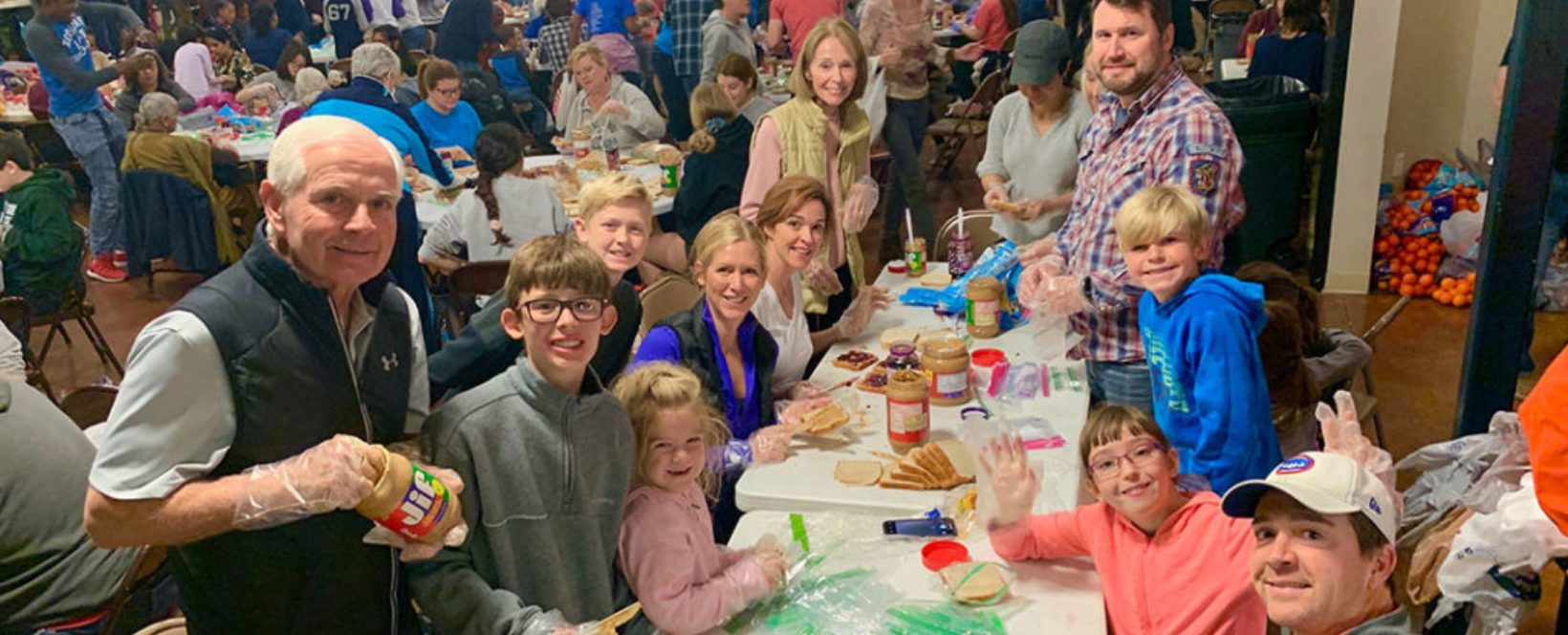The Importance of a Multi-generational Church
Why does multi-generational church-life matter? Is it just about young families building community or is there more to it? If you are considering joining or participating in a multi-generational church service, you are probably curious about its history. We take an in-depth look at what a multi-generational church comprises and its benefits to help you out.
History and Background
Today we have several generations attending church regularly and simultaneously, but this wasn’t always the case. Spirituality and religion have always been a part of society and this has been passed on through generations. The history of multi-generational churches stems back to the origins of Christianity. In the first century, churches were based on inter-generational faith communities with various generations coming together to worship their religion.
In the 20th century, churches adapted to start including ministries that served specific generations. The adaptations included worshipping hours and Sunday school hours. The concepts of multi-generational ministry and intergenerational ministry have then become a popular topic of debate for theorists and disciples alike. Multi-generational Church-life is today quite popular among all generations as they are brought together in a devotional space. Does the Multi-generational Church fit in with Christianity and its history? To answer this, we take a look at the references in scripture and how it fits with Multi-generational Church-life.
References in Scripture
1. Multi-generational churches can be found throughout Scripture. As Deuteronomy 4:9 reads, “Make them known to your children and your children’s children,” – multi-generational churches represent this commandment by opening their doors to all generations.
2. When celebrating the Lord in events such as Christmas feasts, all generations would be present and rejoice in the Lord’s name. There are other instances and examples where communities will come together including Nehemiah 8:2-3 and 12:43. Ezra reads the book of the law in instances where the entire community came together for the celebration.
3. In the book of Psalms, there are also references to multi-generational faith-based devotion. An example of this is Psalm 145:4 which reads that “One generation shall commend your works to another, and shall declare your mighty acts”. Verses 5-6: “He commanded our fathers to teach … their children so that a future generation—children yet to be born—might know. They were to rise and tell their children.”
4. In the New Testament, there are various references to a wide range of generations in faith-based worships.You can view these under: Matthew 10:42, Matthew 21:16; Mark 10:13-16; Luke 9:46-48; Ephesians 6:1-4; Colossians 3:20.
5. In Passover, it was quoted in Exodus 12:26-27, “’ And when your children ask you, ‘What does this ceremony mean to you?’ then tell them, ‘It is the Passover sacrifice to the Lord, who passed over the houses of the Israelites in Egypt and spared our homes when He struck down the Egyptians” – displaying a witnessing of God throughout generations.
Why does multi-generational church-life matter?
Age-specific ministries are important but intergenerational church-based movements have taken a special place in society. It creates a space for generations to have the opportunity to pass their faith on to another generation. Many churches provide age-specific teachings, others include intergenerational and multigenerational teachings. Multi-generational church life does the job of incorporating all ages in every aspect of faith and one faith conversation. It takes the traditional styles that older generations prefer and combines them with contemporary styles that younger worshippers appreciate. What this does is blend culture with the church, serving every member of the community and this is essential in the modern world to keep the faith alive among worshippers.
Should I join a Multi-Generational Church?
It is important to teach the next generation to seek devotion and trust in the Lord and their religion. The aim of the must-generational church is this. If you have families, children, or loved ones of any generation, you should use your faith and wisdom to pass down all that you have learned. Multi-generational churches can help our kids to seek the guidance of the church and God and stay away from a life of trouble. Families can seek out Jesus together and worship his praises without the need for separate ministries and services.
Whether you join a multi-generational church is a personal decision but we suggest doing your research on the benefits of multi-generational church practices and how it fits into your faith and life. We advise that you attend a few multi-generational services on Sundays to get the feel of it. Talk to your local Church (or Father of the Church) about worship service and how you can contribute. You might be taken back by the experience and decide to return.
How to participate in multi-generational faith practices
Of course, the church is essential for faith-based practices but there are some guidelines you can follow to ensure faith reaches all generations.
Faith-based stories
Remember to stay faithful to the word of God and teach your kids stories. Recount your personal and church-based experiences of God’s faithfulness. Remind them how important it is to always stay positive and have faith. Quote paragraphs from the Bible and references to scripture (as the ones mentioned above) to assist you with this.
Answer and encourage all questions
Children are curious and will have a lot of questions. Encourage them to participate in conversations about faith and answer questions they have. They may want to know about Christian celebrations and the religious roots of the holidays, so you can keep your traditions alive by explaining to them why you celebrate this day for example.
Walk the talk
Don’t merely talk about your faith. Attend church regularly, participate in faith-based activities and sing the praises of God so that the next generation can see you practice what you preach. Choose a life that you want your kids to follow and incorporate good values into your life.
Trust God
It may seem simple but putting your trust in God is tough during times of hardships. Sometimes children can watch you lose faith and this is the last thing we want them to witness. Trust that your faith will get you through the worst of days. Show the next generation your strength and belief in God’s grace and most importantly, do not lose heart.
Use love and understanding
One of the main focal points of multi-generational churches is the understanding and empathy it shows towards all age groups. It can be difficult to find common ground with a different generation (especially young people with modern views of tradition). Everyone responds well to love and understanding. Teach the new generation your wisdom, while showing them empathy and understanding.
Join a LifeGroup, meet during our 9:00 & 10:15 am service time
Come & Join us at Grace Church
About Multi-generational Church-Life
If you are considering multi-generational Church-life, you reap the benefits of entering a society where generations co-exist with a shared mission and faith. Here is a summary of what Multi-generational Church-life is all about for your reference:

What is a Multi-Generational Church?
A Multi-generational church comprises a church service that consists of all generations of a family. Multi-generational churches are diverse and encourage all members to work together as one multi-generational unit of culture and tradition. Along with this diversity, the multi-generational church encourages mentorship – with older members and Priests teaching and passing on the word of God to the younger generation. Multi-generational church life is considered highly beneficial towards mending the age gap and passing on traditions of the church. It is considered to be a healthier way of passing on religious teachings than single generational churches. Congregations today are mostly multi-generational which helps families to encourage their younger members to join.
Intergenerational vs Multi-Generational
- Multi-generational Churches have generations that attend services on the same day and same church. Intergenerational church life has smaller service groups and mentoring that happens Monday-Saturday.
- Multi-generational Churches focus on youth as a future and teach them to encourage the youth. There’s more focus on the elderly in intergenerational churches.
- Although both churches focus on the word of God, Multi-generational Churches, separate churches, and worship services are created so that each generation can enjoy learning and interacting more naturally. Intergenerational churches often facilitate opportunities and services for specifically bringing generations together, whether it be Seniors, young adults or youth. While the concept of coming together is good, the youth might tend to feel this to be a bit forced.
The Mixing of Generations
A diverse range of age groups come together to experience multi-generational church life. Mixing generations allows for older generations to share their preferences, advice, and tradition with the younger generation. The younger generation has seen the future and must-generation church-life encourages activities to center around them and structure the church around them. The mixing of generations is therefore a more modern approach to religion and Christianity. As the Christianity population increases, and the world changes, so do religious views and it is important to adapt to the modern world so that the word of God can be spread for many years to come. All generations need to feel valued and respected and multi-generational church life encourages this by opening up services to all ages and families.
Living as part of a Multi-Generational Church
Living as part of a multi-generational church has many benefits for the elderly and young. With a single generation church, we can neglect an age group such as the youth for example, and fail to see the advantages of a youth group. A youth member may have a valuable skill for the church (such as playing the guitar). Living as a part of a multi-generational church will allow you to introduce all age groups to the church which can utilize their skill and gifts towards church life. The youth can also learn so much from the older community and take on lessons that can serve them in life.
Benefits of a Multi-Generational Church
As discussed, there are many benefits of a Multi-generational church. Here are some advantages of joining a Multi-generational church congression:
- It creates a space for the elderly to share their wisdom and traditions.
- It helps to get the youth good values, get them involved in church life and keep them away from a life of crime.
- Sermons can be more flexible and lively, which appeals to all age groups.
- Allows for a more diverse culture change.
- Church life is revitalized and more people are encouraged to join.
- Facilities healthy relationships and bonds, both during church and after.
- Helps all generations to follow the word of Jesus.

About Grace Church Plano
Grace Church Plano is a faith community in Texas that welcomes worship teams and people of all ages. As a multi-generational church, we break generational gaps by including seniors, older generations as well as younger church members. Our church represents people from all walks of life, cultures, nations, and people. We have a saying here that when our kids get to heaven, we don’t want them being surprised. At Grace Church Plano, we believe the Bible is the inspired and only infallible, authoritative written Word of God (2 Timothy 3:16). We believe there is one God, eternally existent in three persons: God the Father, God the Son, and God the Holy Spirit (Matthew 28:19, Colossians 2:9).
To experience multi-generational church life, contact us today!
